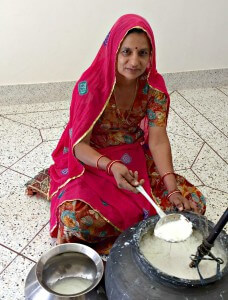
By Nicola Callan
A meal in India would not be complete without Ghee: the more the better. “What is Ghee” you may be wondering? Ghee is a saturated fat which is made from cow’s milk. It is regarded as very important in India both due to its nutritional content and as a very important therapeutic agent in India’s traditional medicine, Ayurveda. At Shri Jasnath Asan we are very fortunate to have the ghee made fresh every second day from our ashram family cows.
How is Ghee made?
Ghee is made traditionally by boiling the milk and then allowing it to cool to room temperature where curd or buttermilk will be added. It is then left for a minimum of 6 hours at a constant temperature of 32-35 degrees Celsius to allow for fermentation. The curd is then placed into a large pot where it is churned until a thick layer forms on top. The butter from the top is then transferred to another pot where it is heated to melting then strained to remove the milk solids from the fat. The fat that is left over is called Ghee!
What are the nutritional properties of Ghee?
- Vitamin A, which is required for immunity, skin health, hormone production (progesterone) and vision health. Vitamin A Â reduces inflammation with its antioxidant activity.
- Vitamin E, which provides antioxidant effects protecting lipid structures in the body from damage.
- Vitamin D, which is required for the absorption and bone utilisation of calcium, assists to coordinate the immune system to balance autoimmune conditions and fight infections, reduces the risk of cancer and cardiovascular disease and is involved in genetic expression resulting in orchestrating hundreds of metabolic processes.
- Conjugated linolic acid (CLA), which has been shown to assist with weight loss and reduce the risk of diabetes and certain cancers.
- Choline, an amino acid that prevents fat from being stored in the liver and which is therapeutically used for non-alcoholic fatty liver disease.
If the cow is grass fed then the ghee will contain Vitamin K2 which is required to move calcium onto the bones and teeth, helping to reduce osteoporosis and cavity formation. Grass fed ghee also contains omega 3 and omega 9 polyunsaturated fats. These are fats that we cannot make and need to acquire from food. They are necessary as they are anti-inflammatory, are needed for hormone production and act like chemical messengers in the body. The fats play an important part in brain and nervous system structure and health.
What are the therapeutic effects of Ghee?
Ghee improves the absorption of minerals. Due to its effect on increasing bile flow it has been identified by the Maharishi Ayurveda Research Centre to assist in the detoxification of 14 fat soluble toxins from the body. A clinical study revealed that administering medicated ghee reduced cholesterol, triglycerides and additional inflammatory lipid markers in psoriasis patients. A study on men in rural India revealed a reduction in coronary heart disease with increased ghee consumption.
What are the Ayurvedic properties of Ghee?
Ghee is cooling in nature but has the ability to balance all the doshas. It is incredibly nourishing to the Ojas (life force) and is an imperative part of the treatment of the frail, weak and elderly. According to Dr Jayant Joshi, doctor of Ayurveda, Allopathy and Naturopathy, ghee is a nervine tonic assisting to calm the person, reduce hysteria, assist with epilepsy, support brain health, boost memory and even helps with a hangover (which will be due to its fatty acid composition and antioxidant activity).
In Ayurveda, due to its cooling nature, ghee is recommended for pitta excess which is evident with skin irritations however Dr Joshi advises that medicated ghee should not be used for pitta excess. Dr Joshi warns there are times when not to indulge in ghee such as when a person has a fever as it is very heavy on the digestion, when a person has gallstones or a weak liver or when urination is occurring during the night (nocturia) due to its heavy effect on the digestive and eliminating organs.
How can I use Ghee at home?
Ghee has a very high flash point due to its saturated fat content so is ideal for cooking at high temperatures. Use ghee instead of hydrogenated vegetable oils or other seed oils and you will have a safer, tastier alternative and a highly nutritious addition to your meal. I also recommend sourcing organic ghee from grass fed cows so you are putting the best quality into your body.
Stay tuned for our Recipes in the new Asan Cookbook, coming soon!
Shri Jasnath Asan is offering Yoga Lifestyle Workshops throughout the year where you can experience the magic of life in Rajasthan and learn to make healthy vegetarian meals from the local traditional cuisine. Yoga Lifestyle Workshop
Â
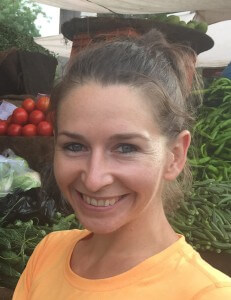
Nicola Callan is Shri Jasnath Asan’s Visiting Naturopath; BSc of Health Science (nutritional medicine); Advanced Diploma of Naturopathy; ANTA member. https://au.linkedin.com/in/nicolacallan
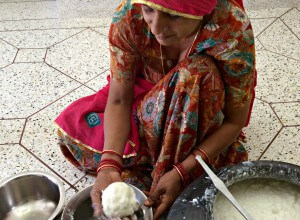
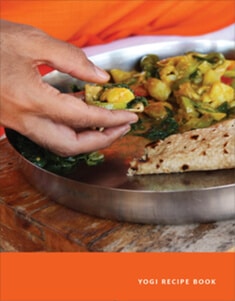
Leave A Comment